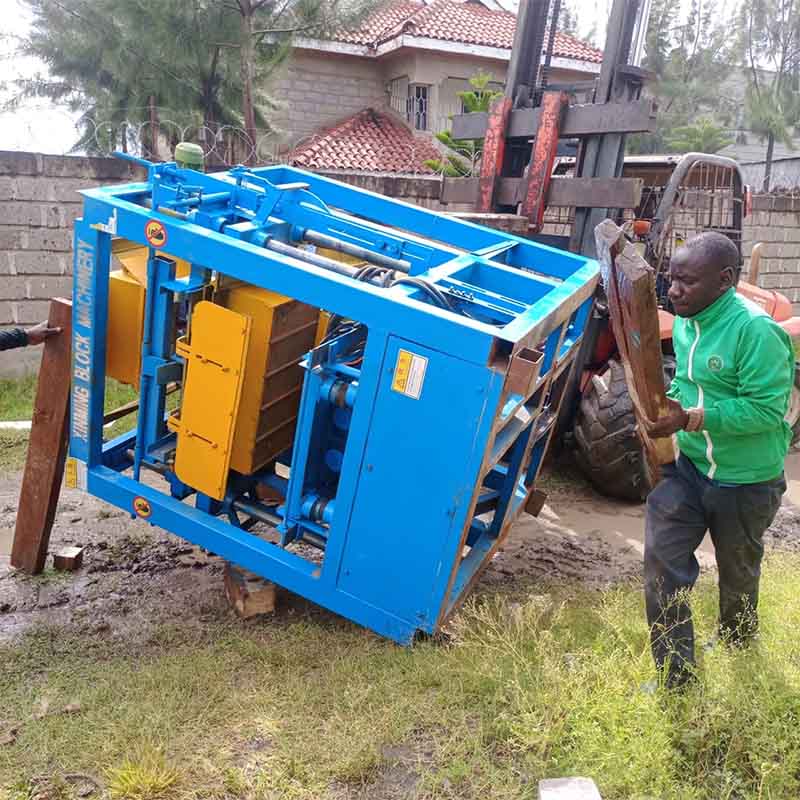
Image source Aiweibrickmachine
Title: Technology Integration for Smart Manufacturing in Block Production
Introduction
The manufacturing industry has undergone a transformative journey in recent years, with advancements in technology playing a pivotal role in shaping the future of production processes. In this context, the integration of technology in the block production sector has ushered in a new era of efficiency, precision, and sustainability. Smart manufacturing, fueled by the Internet of Things (IoT), artificial intelligence (AI), and automation, has become a key driver in enhancing the overall productivity and quality of block production.
- Internet of Things (IoT) in Block Production
The IoT has emerged as a game-changer in the manufacturing landscape, providing seamless connectivity between devices and systems. In the context of block production, IoT-enabled sensors are deployed throughout the manufacturing facility to gather real-time data on various parameters. These sensors monitor the condition of equipment, track raw material usage, and ensure optimal environmental conditions. For instance, temperature and humidity sensors play a crucial role in maintaining the ideal curing conditions for concrete blocks, thus improving the overall quality of the final product.
- Automation for Increased Efficiency
Automation has become synonymous with smart manufacturing, bringing with it a host of benefits for block production. Automated processes reduce the reliance on manual labor, minimize errors, and significantly enhance production efficiency. Robotic systems are increasingly being employed for tasks such as material handling, cutting, and molding in block manufacturing plants. These robots can operate 24/7, ensuring continuous production without the need for breaks, leading to increased output and reduced operational costs.
- Artificial Intelligence for Quality Control
Artificial Intelligence is revolutionizing quality control in block production. Advanced AI algorithms can analyze data from various sensors and cameras to detect defects, ensure dimensional accuracy, and monitor the consistency of raw materials. Machine learning models can be trained to recognize patterns indicative of potential issues, enabling proactive maintenance and minimizing the likelihood of defective products reaching the market. This not only improves product quality but also reduces waste, contributing to a more sustainable manufacturing process.
- Blockchain for Supply Chain Transparency
Blockchain technology is making inroads into the manufacturing sector, providing a transparent and secure way to manage supply chains. In block production, where the quality of raw materials directly impacts the final product, ensuring the integrity of the supply chain is crucial. Blockchain enables real-time tracking of the entire production process, from raw material sourcing to distribution. This transparency not only enhances accountability but also helps in identifying and rectifying issues at any stage of production.
- Smart Maintenance with Predictive Analytics
Downtime due to equipment breakdowns can be a significant challenge in block production. Smart manufacturing leverages predictive analytics to anticipate and prevent equipment failures. By continuously monitoring the condition of machinery, analyzing historical data, and predicting potential issues, manufacturers can schedule maintenance proactively, minimizing unplanned downtime. This not only improves overall equipment effectiveness but also extends the lifespan of machinery, optimizing the return on investment.
- Energy Efficiency through Smart Grids
The concept of smart manufacturing extends beyond the production floor to include energy management. Implementing smart grids allows manufacturers to optimize energy usage, reduce costs, and minimize environmental impact. In block production, where energy-intensive processes such as curing play a vital role, smart grids can dynamically allocate energy resources based on demand, ensuring that energy is used efficiently without compromising production schedules.
- Human-Machine Collaboration
While automation and technology play a crucial role in smart manufacturing, human expertise remains irreplaceable. The integration of technology in block production emphasizes a collaborative approach, where humans and machines work together synergistically. Workers are increasingly being trained to operate and oversee automated systems, troubleshoot issues, and leverage data insights to optimize processes. This collaborative model not only enhances productivity but also creates a safer and more engaging work environment.
Conclusion
The integration of technology in block production has ushered in a new era of efficiency, precision, and sustainability. Smart manufacturing, driven by IoT, AI, automation, and other cutting-edge technologies, is reshaping the industry, making production processes more intelligent, connected, and adaptable. As manufacturers continue to embrace these advancements, the benefits extend beyond the factory floor, influencing supply chains, quality control, and overall sustainability. In the dynamic landscape of block production, staying at the forefront of technological integration is not just a choice but a necessity for those aiming to thrive in the future of manufacturing.
